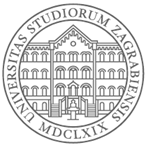As a research discipline, consumer computing is focused on combining human intelligence, as the plural wisdom of the crowd, with artificial intelligence into a symbiotic relationship that will bootstrap consumer-centered innovation through application development.
Consumer computing is an interdisciplinary science that brings together the following research areas:
– social networks,
– crowdsourcing
– human-powered artificial intelligence
– recommender systems
– human-computer interaction
– cognitive science
– psychology of programming
In a number of ways, the IT industry has been developing environments for accelerating innovation and building new applications. From a centralized approach in which innovation was a privilege of big companies, innovation in the field of application development has transformed into an open and distributed process that involves many developers around the world. As a result of this transformation, today we have large application marketplaces and might wonder if everything has been invented already.
- Alessio Malizia, Kai A. Olsen, “Has everything been invented? On Software Development and the Future of Apps”, Computer, September 2011 (Vol. 44, No. 9), pp. 112,110-111.
While it has truly become harder for professional developers to come up with a new application, it happens to be the case that application consumers have been left out of the innovation process. Without doubt, consumers constitute the majority of the world’s population and they have different insight into which applications are needed on the market. That is why new tools are emerging that strive to adapt the application development process towards consumer knowledge and capabilities.
- Appsbar, http://www.appsbar.com/
- Yahoo! Pipes, http://pipes.yahoo.com/pipes/
- Scratch, http://scratch.mit.edu/
Consumer Computing Laboratory is targeting development of Web applications. In this domain of application development, mashup tools have been around for years trying to shift application development to consumers. Mashups have relatively simple, component-based development paradigms, yet few end users develop their own applications.
- F. Daniel, , M. Matera, M. Weiss, “Next in Mashup Development: User-Created Apps on the Web,” IT Professional , vol.13, no.5, pp.22-29, Sept.-Oct. 2011
Our paradigm for consumer application development, called Geppeto, inherits component-based development of mashups and goes further than mashing. While staying closely related to familiar Web-based GUI controls and actions, our Geppeto paradigm uses programming-by-demonstration to introduce the following list of elements
– Data-flow
– Control-flow
– Time-driven
– Event-driven
– Dynamic
– Real-time
– Context-aware
– Communication control,
As the next big step for consumer application development we see application development assisted through the wisdom of the crowd. Many have already recognized the power of the crowd and innovation that comes from pluralism and technology. Besides Wikipedia, an interesting example is the Chorus project, where new intelligence is powered by many humans. Things become really interesting when the crowd as a collective can do better than even a high-quality individual. Application will still be developed by individuals, but the consumer developer can be offered helpful suggestions inferred from the knowledge gained from the large body of previous development decisions of the crowd of consumers. This direction of thought is supported by predictions that machine and human intelligence will merge and outperform individual human or isolated machine intelligence.
-
Authors@Google: Ray Kurzweil, http://www.youtube.com/watch?v=43zo82W7aPI
-
Abraham Bernstein, Mark Klein, Thomas W. Malone, “Programming the Global Brain”, Communications of the ACM, Vol. 55 No. 5, Pages 41-43.
- Tom Simonite, “Artificial Intelligence, Powered by Many Humans”, Technology Review, (09/10/12)
- Larry Hardesty, “Making Crowdsourcing Easier”, MIT News, (08/24/12)
- Joshua E. Brown , Need an Expert? Try the Crowd, University of Vermont (08/14/12)
- Sanmay Das, Malik Magdon-Ismail, ”A Model for Information Growth in Collective Wisdom Processes”, ACM Transactions on Knowledge Discovery from Data (TKDD), Volume 6, Issue 2, July 2012



